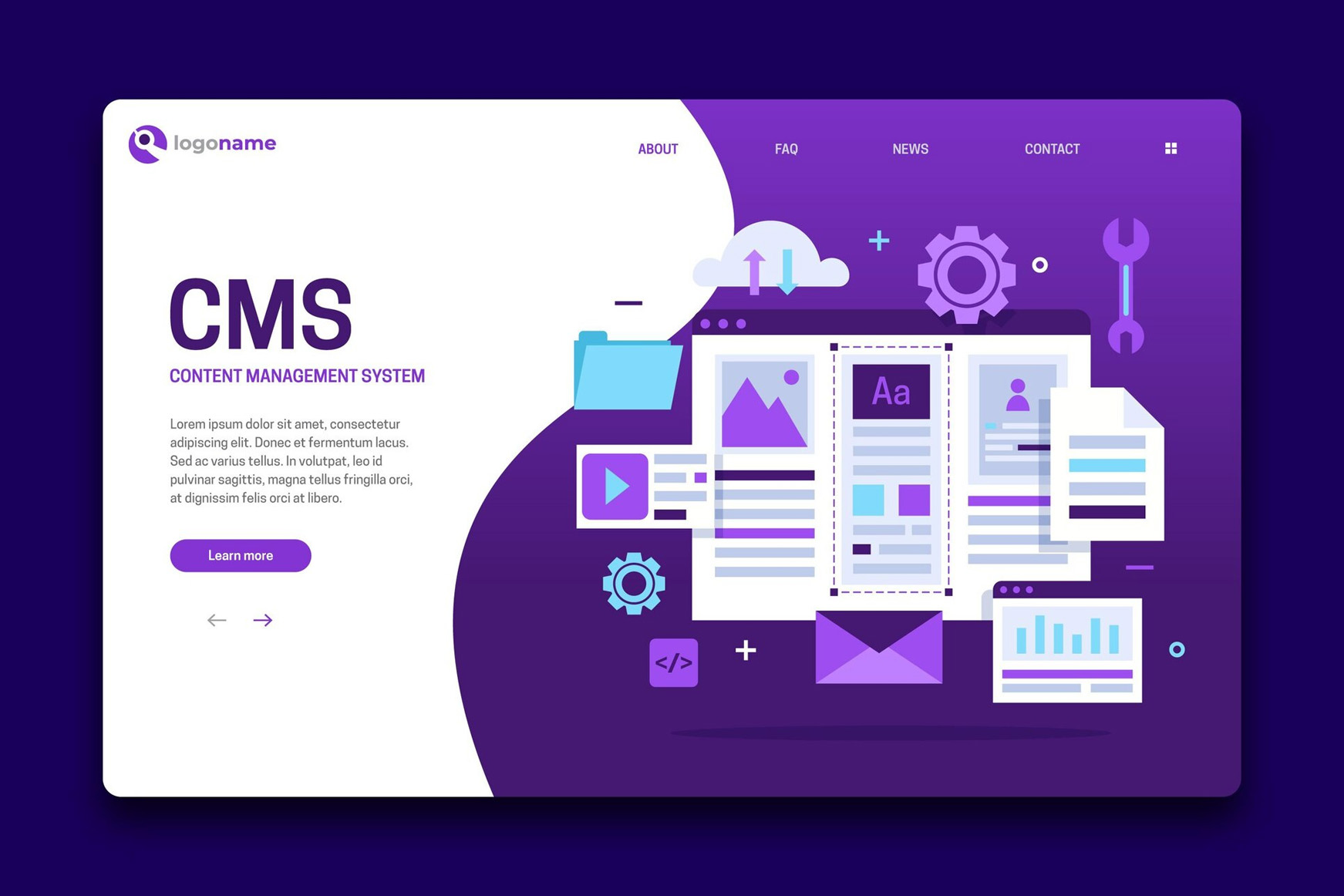Choosing the right CMS (content management system) or framework for e-commerce is a key decision that affects business development, website speed, SEO, and support costs. In this article, we compare the most popular solutions, both ready-made (SaaS) and independent (self-hosted), as well as custom frameworks on Laravel and Symfony.
Table of Contents:
1. Types of CMS and Frameworks
2. Comparison by Key Criteria
3. Extension Ecosystem & Customization Ease
4. Out-of-the-Box Performance
5. Performance After Full Optimization
6. Minimum & Recommended Server Specs
7. When and Which Platform to Choose?
8. Conclusions
Types of CMS and Frameworks
SaaS Platforms: Shopify, Wix, BigCommerce — ready to use, but limited in customization.
Self-hosted CMS: WooCommerce, OpenCart, PrestaShop, Magento — hosted on your own server, flexible for modifications.
Custom Frameworks: Laravel (Aimeos, Bagisto, Vanilo), Symfony (Sylius) — maximum flexibility and control.
Headless CMS: API backend with frontend built on React/Vue/Nuxt — ideal for PWA and mobile applications.
Comparison by Key Criteria
Includes ease of getting started, SEO capabilities, business logic customization, scalability, multilingual and multicurrency support, estimated implementation cost, and time-to-launch.
| Platform | Ease of Launch | SEO | Customization | Scalability | Multilingual / Currency | Launch Cost | Launch Time |
|---|---|---|---|---|---|---|---|
| WooCommerce | ⭐⭐⭐ | ⭐⭐⭐⭐ | ⭐⭐⭐⭐ | ⭐⭐⭐⭐ | ✅ / ✅ | $$ | 20+ days |
| Shopify | ⭐⭐⭐⭐⭐ | ⭐⭐⭐⭐ | ⭐ | ⭐ | ❌ / ❌ | $ | 1–3 days |
| OpenCart | ⭐⭐⭐ | ⭐⭐ | ⭐⭐⭐ | ⭐⭐⭐⭐ | ✅ / ✅ | $$ | 20+ days |
| Magento | ⭐⭐ | ⭐⭐⭐⭐ | ⭐⭐⭐⭐⭐ | ⭐⭐⭐⭐ | ✅ / ✅ | $$$ | 30–60+ days |
| Laravel | ⭐⭐ | ⭐⭐⭐ | ⭐⭐⭐⭐ | ⭐⭐⭐⭐⭐ | ✅ / ✅ | $$$$ | 45–90+ days |
| Symfony | ⭐ | ⭐⭐⭐ | ⭐⭐⭐⭐⭐ | ⭐⭐⭐⭐⭐ | ✅ / ✅ | $$$$$ | 60–120+ days |
Notes:
Ease of Launch — how easy it is to launch a store without deep technical knowledge.
SEO — built-in capabilities for search engine optimization (meta tags, SEO-friendly URLs, canonical URLs, sitemap, rich snippets).
Customization — how flexibly the platform supports business logic, checkout, structure, API, UI changes, etc.
Scalability — ability to handle large catalogs and user traffic.
Multilingual / Currency — whether multilingual and multi-currency features are supported out of the box or via extensions.
Launch Cost — rough estimate for MVP (excluding hosting & advertising).
Launch Time — average development time from start to MVP.
Extension Ecosystem & Customization Ease
Approximate number of available (free/paid) plugins and integrations, and how easy it is to create your own modules or custom logic.
| Platform | Available Modules | Integrations (CRM / ERP / API) | Ease of Custom Development |
|---|---|---|---|
| WooCommerce | 50,000+ | Plenty — via REST API and plugins | ⭐⭐⭐⭐⭐ |
| Shopify | 8,000+ | Solid API but limited by pricing plans | ⭐⭐⭐ |
| OpenCart | 15,000+ | Popular integrations, fewer advanced ERP options | ⭐⭐⭐ |
| Magento | 10,000+ | Strong ERP/B2B integration | ⭐⭐ |
| Laravel | 1000+ | API-ready, Horizon, Events, Queues | ⭐⭐⭐⭐ |
| Symfony | Very few | API-first, tailored for custom integrations | ⭐ |
Notes:
Available Modules: Estimated number of public plugins/extensions across marketplaces and GitHub.
Ease of Development: More ⭐ means easier and faster to develop custom modules.
Out-of-the-Box Performance
Performance benchmark with no optimization, caching, or database tuning — default state after install.
| Platform | 1K Products | 10K Products | 100K Products | 1M Products |
|---|---|---|---|---|
| WooCommerce | ✅ | ⚠️ Slow | ❌ Critically slow | ❌ |
| Shopify | ✅ | ✅ Stable | ⚠️ Limits | ❌ |
| OpenCart | ✅ | ✅ | ⚠️ Slow | ❌ |
| Magento | ✅ | ✅ | ✅ Acceptable | ⚠️ Slow |
| Laravel | ✅ | ⚠️ Slow | ❌ | ❌ |
| Symfony | ✅ | ⚠️ Slow | ❌ | ❌ |
Notes:
✅ — Performs well.
⚠️ — Lag possible, depends on server setup.
❌ — Not viable for this scale.
Performance After Full Optimization
Includes Redis, CDN, page/object caching, Elastic, DB optimization, queue handling, etc.
| Platform | 1K Products | 10K Products | 100K Products | 1M Products |
|---|---|---|---|---|
| WooCommerce (Redis, ElasticPress, cache, CDN) |
✅ | ✅ | ✅ Stable | ⚠️ Case-by-case |
| Shopify (Built-in CDN & caching) |
✅ | ✅ | ⚠️ Limitations | ❌ |
| OpenCart (VQMod, cache, MySQL tuning) |
✅ | ✅ | ⚠️ Customization required | ⚠️ Case-by-case |
| Magento (Redis, Varnish, CDN, module cache) |
✅ | ✅ | ✅ Stable | ✅ Enterprise-ready |
| Laravel (Redis, Horizon, Elastic, queues) |
✅ | ✅ | ✅ Strong | ✅ Enterprise-ready |
| Symfony (Redis, Elastic, cache, API-first) |
✅ | ✅ | ✅ Strong | ✅ Enterprise-ready |
Notes:
✅ — Platform performs well.
✅ Enterprise-ready — Suitable for large-scale businesses.
⚠️ — May need additional customization.
❌ — Not intended for such scale.
Minimum & Recommended Server Specs
VPS/server requirements based on catalog size and traffic.
| Platform | Minimum Specs | Recommended Specs | Cost / mo |
|---|---|---|---|
| WooCommerce | 2 CPU / 4 GB RAM SSD, PHP 8.1+, MySQL 5.7 |
4–8 CPU / 16–32 GB RAM Redis, MariaDB, ElasticPress |
$10–40 |
| Shopify | Hosting included in Shopify subscription | $29–299 | |
| OpenCart | 2 CPU / 2–4 GB RAM Apache/Nginx, MySQL, PHP 7.4+ |
4 CPU / 8–16 GB RAM Redis, cache modules |
$8–30 |
| Magento | 4 CPU / 8 GB RAM PHP 8.1, MySQL, Elasticsearch |
8–16 CPU / 32–64 GB RAM Redis, Varnish, CDN |
$40–120+ |
| Laravel | 2–4 CPU / 4–8 GB RAM PHP 8.1, Redis |
8 CPU / 16–32 GB RAM Horizon, queues, Elastic |
$20–80 |
| Symfony | 4 CPU / 8 GB RAM PHP 8.2, PostgreSQL |
8–16 CPU / 32–64 GB RAM Redis, Elastic, CDN |
$40–150+ |
Notes:
Minimum — For small catalogs with low traffic.
Recommended — For scalable environments with caching, filters, APIs.
Cost — Based on average pricing from Hetzner, Contabo, DigitalOcean, AWS.
When and Which Platform to Choose?
Your choice depends on project size, budget, and technical needs:
| Scenario | Scale | Recommended Platforms | Comment |
|---|---|---|---|
| Small Business Launch | up to 1K products | WooCommerce, OpenCart | Quick to launch, cost-effective |
| Store Growth | 10K – 100K products | WooCommerce, OpenCart | Requires caching and tech support |
| Enterprise Level | 100K+ products | Magento, Laravel, Symfony | Advanced customization, high load |
| Headless / Mobile PWA | any | WooCommerce API + Nuxt Laravel + Inertia/Vue |
Ideal for modern SPA/mobile UI |
| Low Technical Involvement | up to 10K products | Shopify | Turnkey solution, limited flexibility |
| Maximum Flexibility | any | Laravel, Symfony | Full control over logic and scale |
Contact us
After receiving the form, we will contact you soon to discuss the details.
Conclusions
There’s no one-size-fits-all solution. WooCommerce is flexible but requires optimization. Shopify is easy to launch but limited in customization. Laravel and Symfony are best for custom enterprise-grade solutions where speed, complex logic, and scale matter. Choosing the right CMS depends on your budget, team, and long-term business goals.

